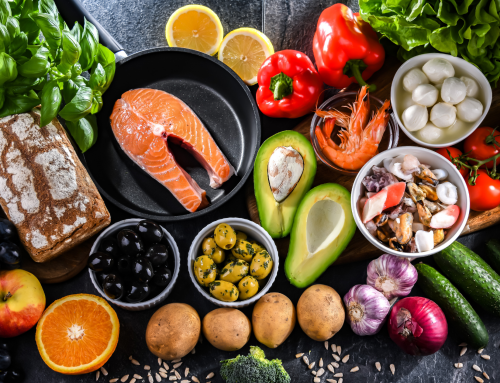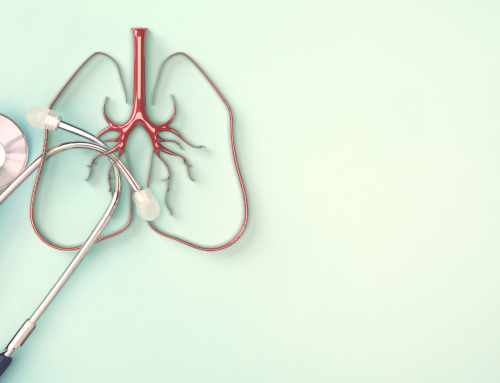Since you began cancer treatment, you may have noticed that foods have started to taste and smell different. You might be wondering why sometimes foods taste excessively salty or sweet, underwhelmingly bland, or even metallic. This can occur before, during or after treatment.
These changes can make the eating experience less enjoyable and even frustrating, making you feel less likely to want to eat as regularly as you used to. This then leads to a reduced appetite and consequently results in you not getting enough nutritional intake.
It’s crucial to recognise that changes in taste and smell are common side effects during cancer treatment and more importantly, there are ways that you can manage them to make your treatment experience more pleasant and easy to cope with.
How to Manage Taste Changes
1. Experiment with Flavours
- If food tastes bland, try adding herbs, spices, or marinades to your meals to enhance flavour. Basil, chilli, oregano, mint, honey, or lemon juice can make a significant difference.
- If meat tastes metallic or bitter, marinate it in acidic solutions like vinegar or citrus juice. You can also try snacking on moist fruit or sweets. Use bamboo or plastic utensils and glass cookware to reduce metallic tastes.
- If food tastes too salty. Avoid adding salt to home-cooked meals and consuming low-salt alternatives like roast meats in a sandwich rather than ham or salami. You can also try adding a small amount of sugar or honey to your food
- If food tastes too sweet, try plain alternatives with less added sugar such as oatmeal, porridge or bran flakes. Avoid using sweeteners and try adding a bit of salt or lemon juice to your meals.
2. Adjust Food Temperature
- Cold or room-temperature foods may be more palatable than hot foods, as heat can intensify tastes and smells.
- Try chilled soups, salads, or yoghurts.
3. Choose Protein Alternatives
- If red meat tastes off, consider alternatives such as chicken, fish, eggs, dairy products, or plant-based proteins like beans and lentils.
4. Avoid Negative Food Associations
- Avoid favourite foods just before, during, or after treatment to prevent negative associations with possible side effects
5. Stay Hydrated
- Sipping on water or chewing sugar-free gum can help keep your mouth moist and reduce bad taste.
- Incorporate hydrating foods like cucumber, watermelon, and oranges.
How to Manage Smell Changes
1. Ventilate Your Eating Area
- Ensure your dining area is well-ventilated to reduce strong smells.
- Consider eating meals outdoors or by an open window.
2. Use Odour-Neutral Cooking Methods
- Boiling, steaming, or microwaving foods can produce fewer odours compared to frying or grilling.
- Use kitchen gadgets like a slow cooker to contain food smells.
3. Focus on Cold Foods
- Cold foods typically have less aroma, making them easier to tolerate.
- Try cold sandwiches, salads, or smoothies.
4. Reduce Exposure to Strong Smells
- Avoid cooking or eating in areas with strong odours. Ask family members or friends to cook if possible.
- Choose less aromatic foods and ingredients.
General Dietary Tips
1. Small, Frequent Meals
- Eating smaller, more frequent meals can help you get enough nutrition without feeling overwhelmed by taste changes.
- Aim for nutrient-dense snacks like nuts, cheese, or avocado toast.
2. Oral Hygiene
- Maintain good oral hygiene by brushing your teeth and tongue regularly. This can help improve taste perception.
- Use alcohol-free mouthwashes or baking soda rinses to keep your mouth fresh.
3. Nutritional Supplements
- If eating solid food is challenging, consider nutritional drinks or smoothies to ensure you’re meeting your energy and protein needs.
- Consult with a dietitian before starting any supplements to ensure they’re appropriate for you.
Support and Professional Help
Dealing with changes in taste and smell can be frustrating, but you don’t have to manage it alone. At Tasman Health Care, we have dietitians specialising in oncology who can provide personalised advice and support. We can help you create a tailored eating plan to ensure you maintain adequate nutrition during your treatment journey.
If you’re experiencing significant issues with taste and smell changes, or if you have any concerns about your diet during cancer treatment, don’t hesitate to reach out to our oncology dietitian. Together, we can develop strategies to help you enjoy your meals and stay nourished.
For more information or to book a consultation, please contact Tasman Health Care. You can book an appointment at 07 5613 2480 during our operating hours from 8:30 am to 4:00 pm. We’re here to support you every step of the way.






